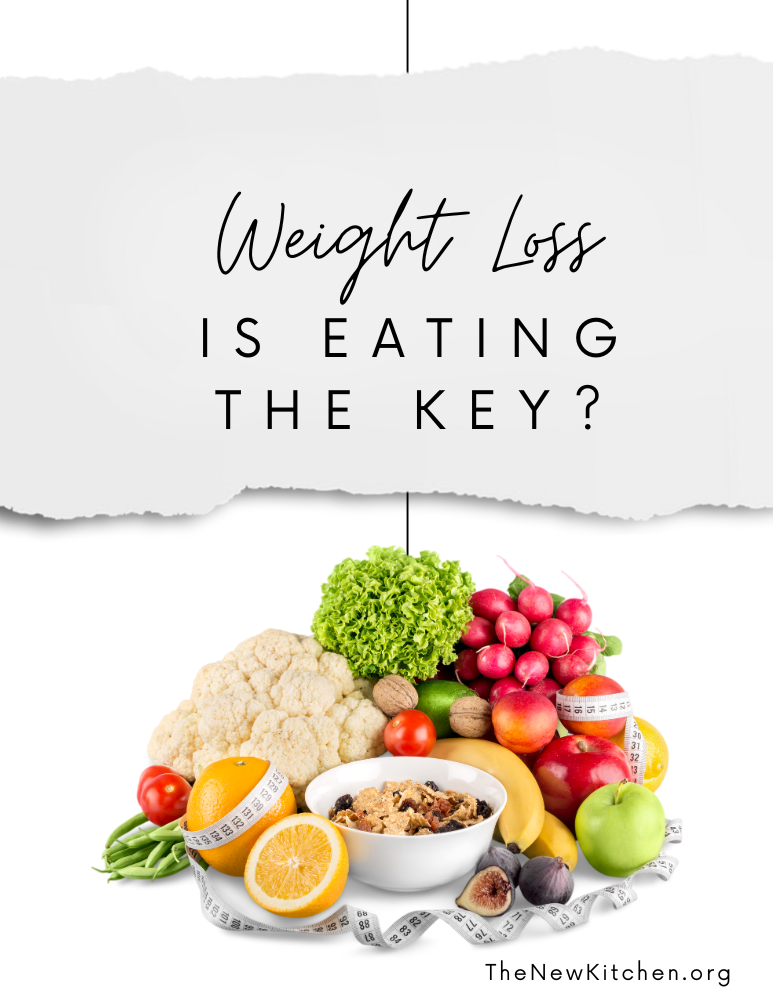What if the root cause of over eating and weight gain is just plain old hunger?
And so, what if the solution lies in addressing the fact that WE’RE HUNGRY, i.e., by eating!
You probably remember the Calories In/Calories Out weight loss formula, i.e., weight loss is just a matter of eating fewer calories than we burn. To lose weight, then, we just need to focus on eating fewer calories.
Over the years, we have exerted a great deal of energy and will power and we have experimented with dozens of diets, but for the most part we haven’t been too successful reducing calories.
What if the Calories In/Calories Out formula is missing a critical piece, i.e., why do we keep eating too many calories?
This is what Dr. Jason Fung kept asking. A nephrologist (kidney specialist) and leading expert in intermittent fasting and low-carb diets, he sensed that the Calories In/Calories Out formula doesn’t drill down deep enough. It doesn’t explain the root cause for why we eat too many calories.
“If you look at the main determinant of how much we eat,” he says, “it is whether you’re hungry. If you’re hungry you’re going to eat more. If you’re not hungry, you’re going to eat less.” (1)
This is why he encourages us to focus not on caloric intake but on dealing with hunger. Hence my question:
Could the solution for weight loss be as simple as . . . eating
That idea may sound crazy since weight gain is usually associated with OVER-eating. It makes more sense, however, if you understand there’s a difference between “eating” and “pseudo-eating.”
Eating = The centuries old tradition of ingesting whatever fruits of the earth you could forage, grow, buy or otherwise procure. These “foods,” as we call them, are expertly designed by Nature to deliver us all the nutrients we need to not only survive but to also stay well and thrive. Importantly, they also trigger our innate satiety signals so we stop eating.
Pseudo-Eating = A recent permutation of traditional eating that involves ingesting food-like products that come from factories. Because of the way they are manufactured, these foods mess with the body’s satiety signaling system so we don’t get properly cued when it’s time to stop eating.(2) Add that to the fact that they are manufactured to be addictive and it’s easy to see why pseudo-eating causes us to ingest too many calories.
This was demonstrated in the Hall Study, a controlled experiment comparing people eating a diet of UPFs with people eating real whole foods. When put on a diet of UPFs, the study participants ate 500 more calories per day and gained two pounds over just two weeks! (This study was explained in my webinar, Breaking Free of the Processed Food Force Field, and also in the handouts at the same link.)
This gets into the topic of hormones. Dr. Fung explains that while hunger is the root cause of eating too many calories, an even deeper driver is the hormones that control hunger. At first blush, the hormone factor might seem to provide good cover for overeating, e.g., “Hey, it’s my hormones making me overeat. I can’t do anything about that!”
Not so fast, says Dr. Fung. We actually can control our hunger hormones by “the foods that we eat and how often we eat them. Certain foods stimulate certain hormones. If you eat 100 calories of cookies vs. 100 calories of broccoli the hormonal responses in our bodies are completely different.” (And you can probably guess how the results differ!)
So once again, no surprise, the healthy eating that supports a healthy weight is not rocket science. First, when you’re hungry, eat! Secondly, eat real, whole foods–and only real whole foods
